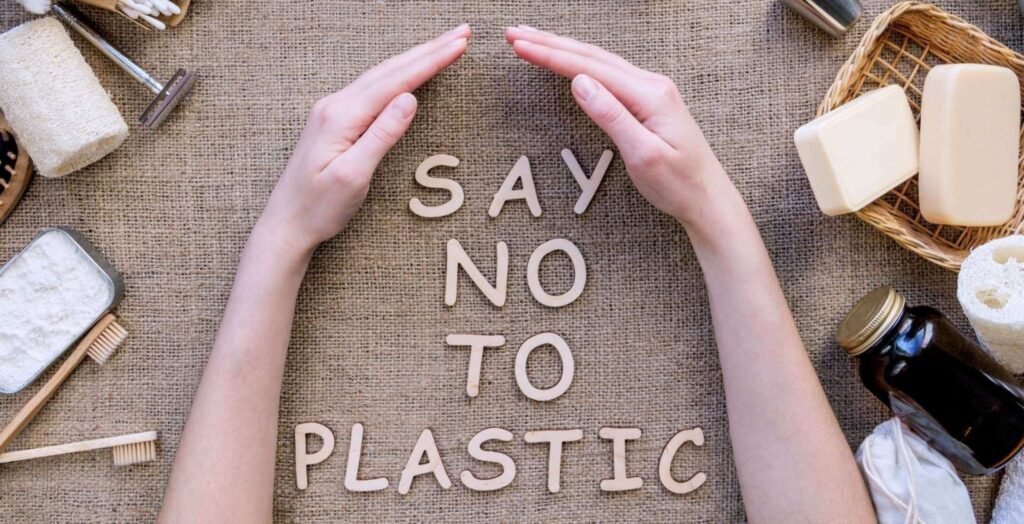In our modern world, where convenience often comes at the expense of environmental health, the rallying cry to say no to Plastic has never been more urgent.
However, enduring presence and slow degradation rate pose a monumental threat to our planet’s ecosystems. The repercussions of pollution are evident in our oceans choked with debris, our landscapes marred by litter, and our wildlife suffering from entanglement and ingestion.
The time to act is now, and the solution begins with a simple yet powerful commitment: refuse single-use. By embracing sustainable alternatives and advocating for mindful consumption habits, we can stem the tide of pollution and chart a course toward a cleaner, greener future.
Say no to plastic posters and join the global movement towards a more sustainable tomorrow.
1. Why We Should Have No to Plastic Use

In a world inundated with use, the imperative to “say no to plastic” resonates more profoundly than ever. Recent discoveries unveil shocking realities of pollution, unveiling tragic consequences for marine life and even humans.
Whales, deer, birds, and myriad marine creatures fall victim to ingestion, which has dire implications for their health and survival. However, longevity exacerbates the issue, with estimates suggesting it could persist for over 1000 years, fragmenting into insidious microplastics that permeate the food chain.
Transitioning from shocking statistics to alarming projections, up to 12.7 million tonnes of polythenes inundate our oceans annually—a weight equivalent to a staggering 12 million elephants.
If current trends persist, by 2050, the sea could surpass fish in content, a disturbing testament to our collective failure to address this crisis. Adding a geographical dimension, a startling revelation emerges: a disproportionate 88-95% of ocean-bound originates from just ten rivers globally.
2. Pollution from Plastic Bags

However, bags ubiquitous since the 1960s, have undeniably served convenience. However, it’s time to be have no decisively. Every minute, a staggering 2 million bags are consumed globally, with 30 million entering the environment yearly.
Transitioning away from them is paramount. These bags are alarmingly mobile, quickly whisked away by the wind to sensitive natural habitats. Despite efforts in conventional waste management, they persistently infiltrate water bodies and wilderness.
In marine ecosystems, they pose a deadly masquerade, resembling jellyfish, a staple for many aquatic species. This deception leads to ingestion, hindering proper digestion and nutrition, thus threatening marine life.
Furthermore, the sorting process in landfills often renders them into smaller, easily dispersed fragments, endangering terrestrial fauna. Such dire consequences underscore the urgent need to reject plastic bags. No use and embrace sustainable alternatives for a healthier environment.
3. Pollution from Plastic Straws

Due to their widespread use and durability, plastic straws pose a significant pollution threat. Approximately 500 million are used daily in the United States, contributing to environmental degradation.
Their lightweight nature allows them to travel long distances, like plastic bags, exacerbating their impact on ecosystems. Unlike easily recyclable materials, straws are challenging to recycle.
Exposure to sunlight can cause them to become brittle, breaking down into harmful microplastics. Marine life faces direct harm as they mistake straws for food. To combat this issue, advocating for reducing straw usage is crucial. Individuals can play a role in mitigating pollution and safeguarding the environment by saying no to straws.
4. Pollution from Plastic Bottles
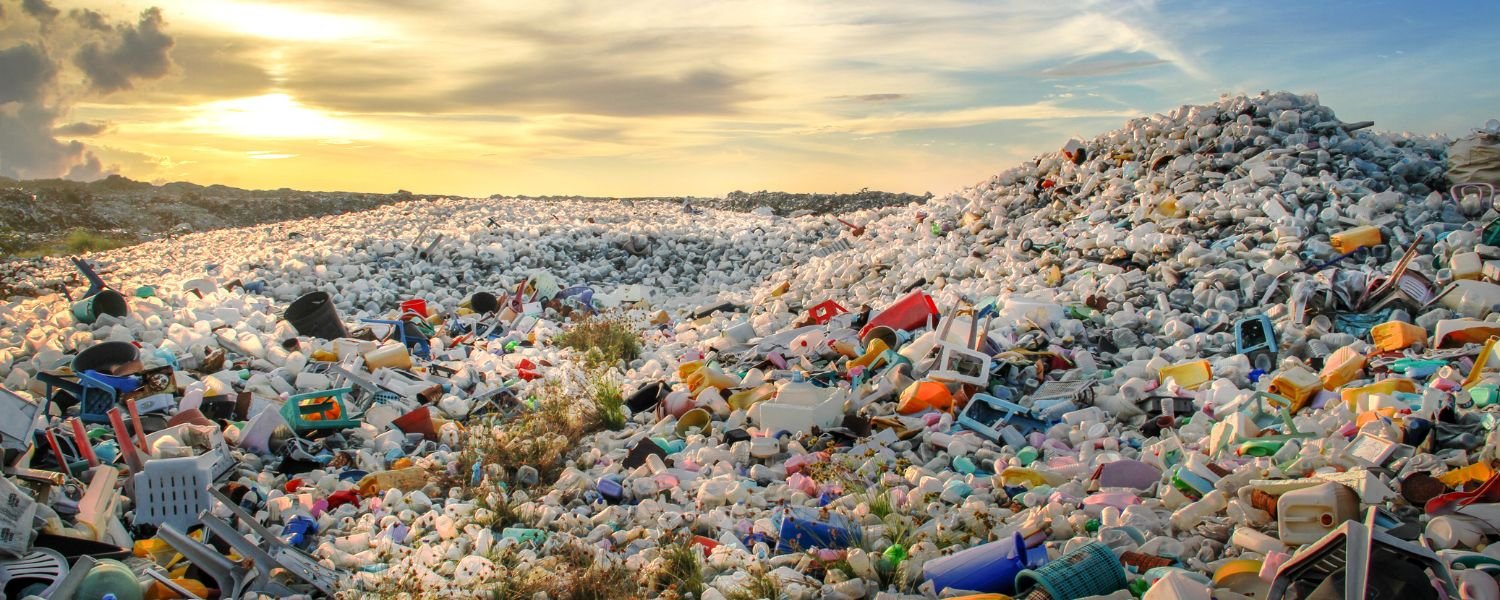
However, bottles have become ubiquitous daily, with millions used globally each day. This surge is fueled by the scarcity of clean drinking water, affecting 663 million people worldwide.
The culture of disposability and persuasive marketing from bottled water companies exacerbate the issue. Beyond environmental concerns, bottles pose health risks.
Chemicals like Antimony (Sb) and Bisphenol A (BPA) can leach into the water, endangering human health. A study testing 11 major bottled water brands found that 93% contained microplastics, with levels twice that of tap water. Embracing the mantra “Say no to plastic” mitigates these detrimental effects.
By rejecting single-use plastic bottles, we reduce environmental pollution, safeguard clean water sources, and protect human health from harmful chemicals. It’s a small yet impactful step towards a healthier planet and population.
5. The 7 R’s of Sustainability
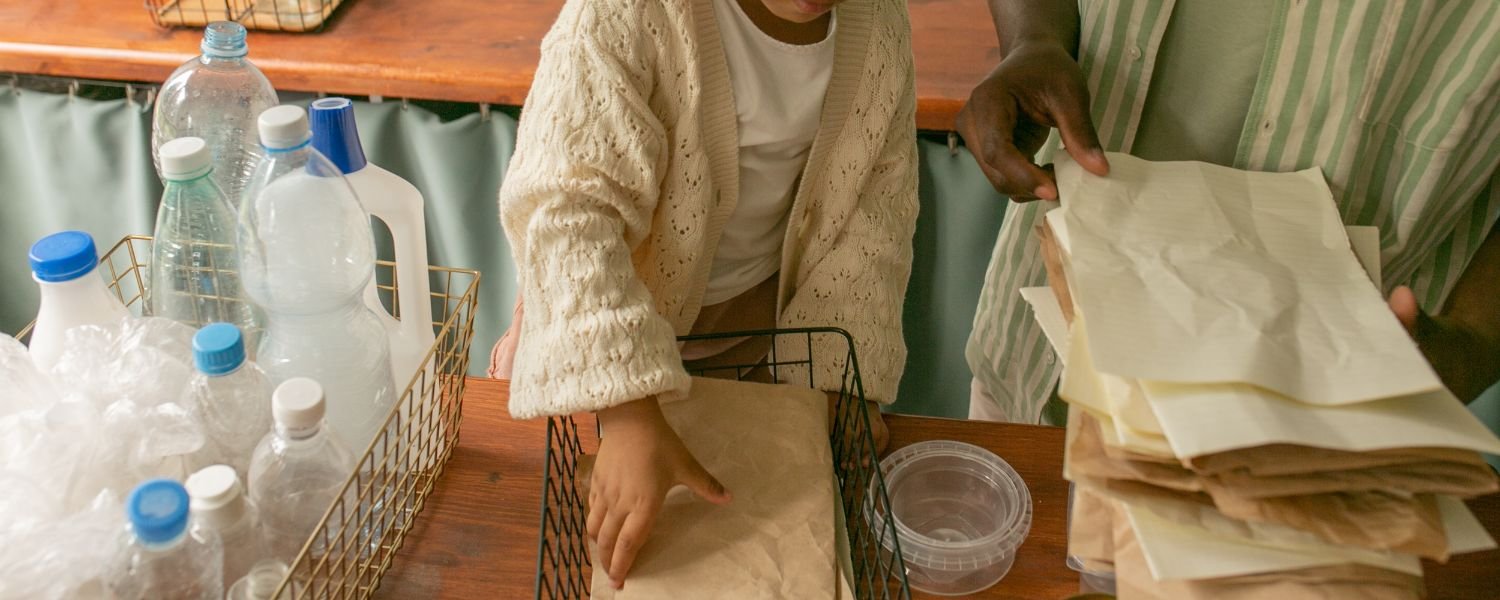
The 7 R’s of sustainability provide a framework for reducing environmental impact, focusing on saying no to Plastic. First, rethink whether a product is essential to minimize consumption.
Next, refuse single-use items that can’t be recycled or reused. Then, reduce the purchase of single-use items to limit waste. Repurposing through upcycling offers a creative poster on saying no to plastic alternatives.
Reusing by cleaning it and using it again extends its lifespan. Recycling properly involves understanding local recycling guidelines. Finally, removing trash from the environment through small clean-up efforts contributes to overall cleanliness. By embracing these principles, individuals can actively combat pollution and promote sustainability.
6. How to Stay Away from Plastic in Your Kitchen
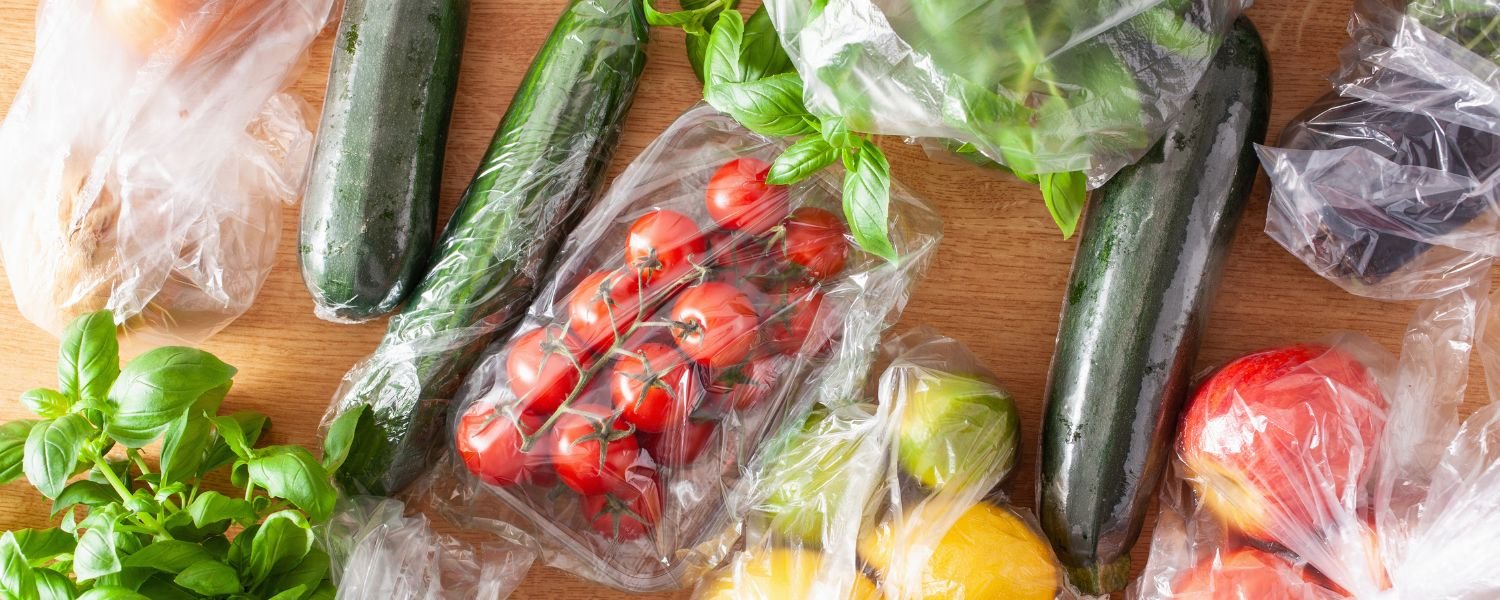
Reducing use in the kitchen is achievable through simple changes. Start with food storage by opting for reusable glass or stainless steel containers instead of plastic bags or wraps.
When shopping, choose products with minimal or no packaging, like bulk items or those in recyclable materials. Consider buying fresh produce from local markets to avoid wrapping options. Additionally, alternatives like beeswax wraps or silicone lids can help preserve food without relying on wrap.
Use compostable or biodegradable trash bags for garbage disposal instead of traditional ones. Minimize waste by composting organic kitchen scraps and recycling non-compostable materials.
By making conscious choices and gradually eliminating Plastic from your kitchen, you contribute to a healthier environment and reduce your carbon footprint.
7. Plastic Alternatives For Food Storage

No to Plastic with these environmentally friendly food storage alternatives. Silicone bags are durable and suitable for freezing and microwaving without retaining food odors. Beeswax wraps, crafted from organic cotton and beeswax, provide a reusable option to cling wrap; wash with cold, soapy water and air-dry.
Glass containers offer cleanliness and stackability while repurposing old jars or boxes minimizes waste and avoid purchasing new containers. These alternatives mitigate plastic usage while maintaining practicality and convenience in food storage solutions.
By embracing silicone, beeswax, and glass, you can positively impact the environment while preserving the freshness of your food.
8. How to avoid Plastic in your Garbage Bins
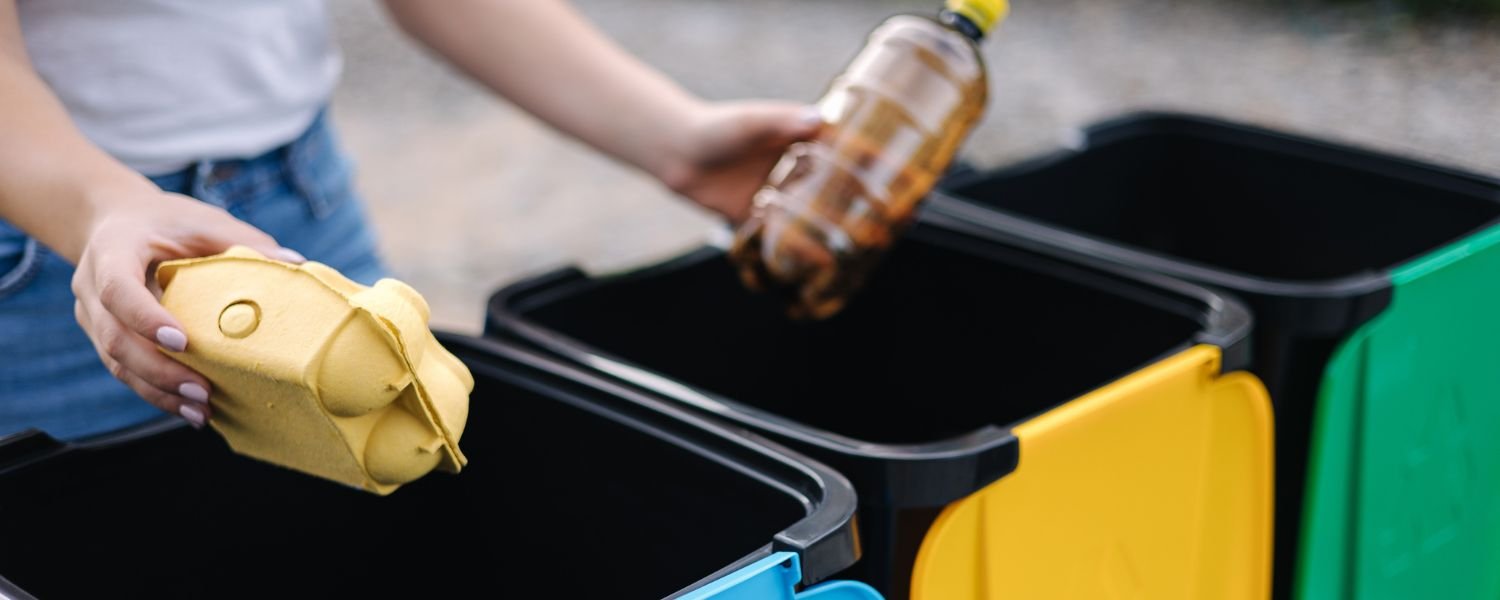
To reduce plastic waste in your garbage bins, skip the plastic bag liners. While they might seem convenient for containing trash, these bags often end up in landfills, where they break apart, scattering debris.
This contributes to global pollution, harming ecosystems and wildlife. Instead, opt for alternatives like reusable cloth bags or biodegradable liners made from materials like paper or compostable plastics.
These options minimize environmental impact and reduce the need for single-use. By saying no to plastic bags in your garbage bins, you can play a part in mitigating the widespread pollution crisis. Choose eco-friendly alternatives to keep your waste contained without harming the environment.
9. How To Make Your Bathroom Free

However, reducing Plastic in your bathroom is easier than ever with the increasing availability of eco-friendly toiletries. Many companies now offer products with minimal to no chemicals, benefiting both consumers and the environment.
Opt for items packaged in cardboard, glass, or metal containers, reducing plastic waste and having no zone slogans. Look for zero-waste options like toothpaste and shampoo bars, eliminating the need for plastic bottles.
Bamboo toothbrushes are a biodegradable alternative to plastic ones, reducing usage. Safety razors provide a plastic-free shaving option while delivering a close shave.
Switching to menstrual cups or reusable menstrual underwear also helps decrease period waste, reducing reliance on disposable pads and tampons, which contribute to plastic pollution. By saying no to Plastic and embracing these alternatives, you can create a more eco-friendly bathroom routine; some people may say no to plastic drawing.
10. Avoiding Plastic When Shopping

Opt for reusable bags instead of single-use plastic bags to reduce waste. Choose from various options, like compact-sized no to plastic bags or natural-looking baskets, to suit your needs.
By eliminating the demand for single-use bags, we can encourage companies to stop producing them. Use mesh produce bags for loose vegetables and fruits; they’re lightweight and expandable to accommodate different produce sizes.
Canvas bags are ideal for carrying heavier or bulkier items such as cans, jars, and glass bottles. By saying no to Plastic and embracing reusable alternatives, you reduce plastic waste and promote sustainability in your shopping habits.
Conclusion
In conclusion, embracing the call to “Say No to Plastic” is paramount for safeguarding our planet’s future. By rejecting single-use plastics like bags, straws, and bottles, individuals can significantly curb the tide of pollution, including the effect of air pollution, that threatens our ecosystems.
Transitioning towards sustainable alternatives reduces environmental harm and fosters a culture of mindful consumption. The 7 R’s of sustainability provide a comprehensive framework for action, guiding us to rethink, refuse, and repurpose in our daily lives.
From the kitchen to the bathroom, and even during shopping trips, ample opportunities exist to make eco-conscious choices and minimize usage. By saying no to Plastic and embracing environmentally friendly alternatives, we can pave the way towards a cleaner, greener future for generations to come.
For more education-related blogs, Subscribe to us Now!
FAQ
Q1. What does “Say No to Plastic” mean?
A. This means a movement advocating reducing single-use plastic consumption. It emphasizes the principles of Reduce, Reuse, and Recycle to combat the environmental hazards posed by pollution.
Q2. Why is it crucial to reject Plastic?
A. Plastic pollution severely impacts marine life, with countless sea creatures suffering from ingestion or entanglement in waste. By refusing Plastic, we mitigate its harmful effects on ecosystems and human health.
Q3. Why focus on avoiding plastic bags?
A. Plastic bags are particularly harmful due to their slow decomposition rate and propensity to leach toxic substances. They endanger wildlife and contribute to environmental degradation, making their elimination crucial in combating plastic pollution.
